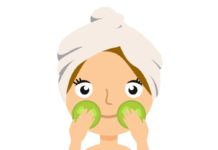Step 1
*50g of citric acid or 1/2 cup of vinegar for 1 litre of water
*100g of citric acid or 1 cup of vinegar for 1 litre of water if you see more lime scales
Step 2
*Pour contents into your kettle
Step 3
*Once the kettle boils leave it boiling for another 3 minutes.
Step 4
*Pour contents out and then wipe down your kettle.
Step 5
Rinse a few times with water and then boil your kettle with water 1 last time. Pour out the hot water. So here we are going to pour the contents into the kettle.
You descale mineral deposits from your kettle due to household surfaces that has built up. {S}The calcium and magnesium in water leaves hard deposits called lime scales in your kettle.
Next step take your kettle to be boiled…once that is done we will pour it out. Now, there are a number of ways you can descale it..with either citric acid or vinegar. Today we chose to clean with vinegar since it was the only thing available in our household. Vinegar is a great all-around kitchen and bathroom CLEANER.
The drawback to vinegar is that it does leave a smell and takes a few more times to wash or rinse out the smell from your kettle. We wash our kettle about once a month which is good since it maintains the health and longevity of the kettle. Final step, just pouring water in there and boiling it 1 last time.
=====
Note:
=====
**Citric Acid doesnt leave a strong vinegar smell behind.
**White vinegar is a weak acid which is about 5 percent acidic acid. It may remove hard water deposits from glass, rust stains from sinks, and tarnish from brass and copper.
**Lemon juice is another weak acid that contains citric acid. It can be used in the same manner as vinegar.
Don’t forget to like, share, and subscribe at WatzUp Today!
Join our mailing list for freebies (audio, video, books, etc).
Instagram: https://www.instagram.com/watzuptoday
Youtube: http://www.youtube.com/c/watzuptodaynews


























